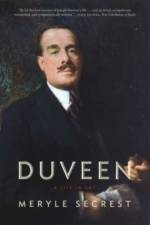av Meryle Secrest
321
A Groundbreaking New Perspective of Princess Margaret by Renowned Biographer Meryle Secrest Meryle Secrest, distinguished biographer in the arts and humanities, and recipient of a White House Medal, has turned her focus to royalty. In Princess Margaret and the Curse, she has put the conventional view of a much-reviled Princess on its head. Her latest study, which she considers more of an investigation than a biography as such, proposes that nobody knows the truth about the fabled, doomed Princess. She is the first person to have looked at Princess Margaret in a particular family context. That is to say with reference to her mother, Elizabeth Bowes-Lyon, the daughter of a famous, hard-drinking Scottish family that had inhabited an ancient dwelling, Gamis Castle, for centuries. Her older brothers were already renowned for their prowess in alcohol consumption. Decades later, once she became Queen Mother, this Elizabeth would begin to imbibe by eleven in the morning. She was already lamenting the loss of her "drinking powers" when, because of severe bouts of morning sickness during her first pregnancy with the future Queen Elizabeth in 1926, she could not drink. Four years later, while pregnant with Princess Margaret in 1930, she was not so handicapped. Doctors believed it was perfectly safe for a mother-to-be to drink, so she drank. The doctors were wrong. But it took another forty-three years, until 1973, before new studies established that alcohol in any amount was poisonous to the developing human being. The effect is lifelong. We now know that victims’ growth is stunted (Margaret stopped growing at five feet), and their skeletal structures are fragile. They get sick sooner and age faster. There are characteristic emotional differences, too. They never develop maturity of mind. They remain subject to sudden tantrums, rages, are poor judges of character, and particularly prone to run and hide, as Princess Margaret tried to do all her life. They may be as intelligent and gifted as she was, but mulish and fly into a rage. They are, it turns out, exactly like the person she became. None of this has ever been recognized, let alone understood. With this study, the author places Margaret's life in its proper perspective. It seems particularly sad that someone expected to be perfection itself in her manners and behavior should have been born in the one situation where perfection was, in fact, impossible. It is time we looked at this public figure from a new and more forgiving frame of mind, and with a new understanding.






